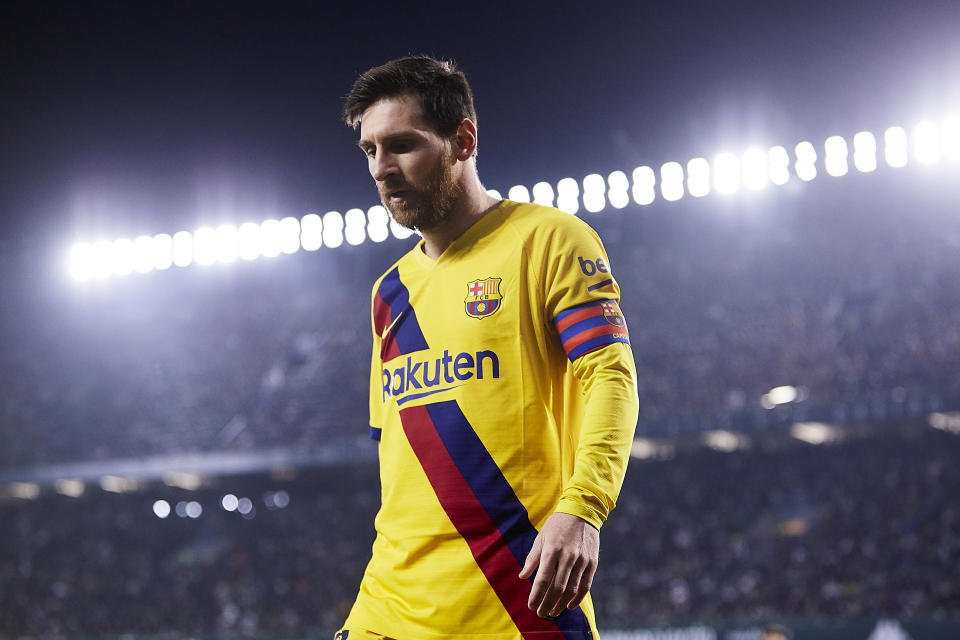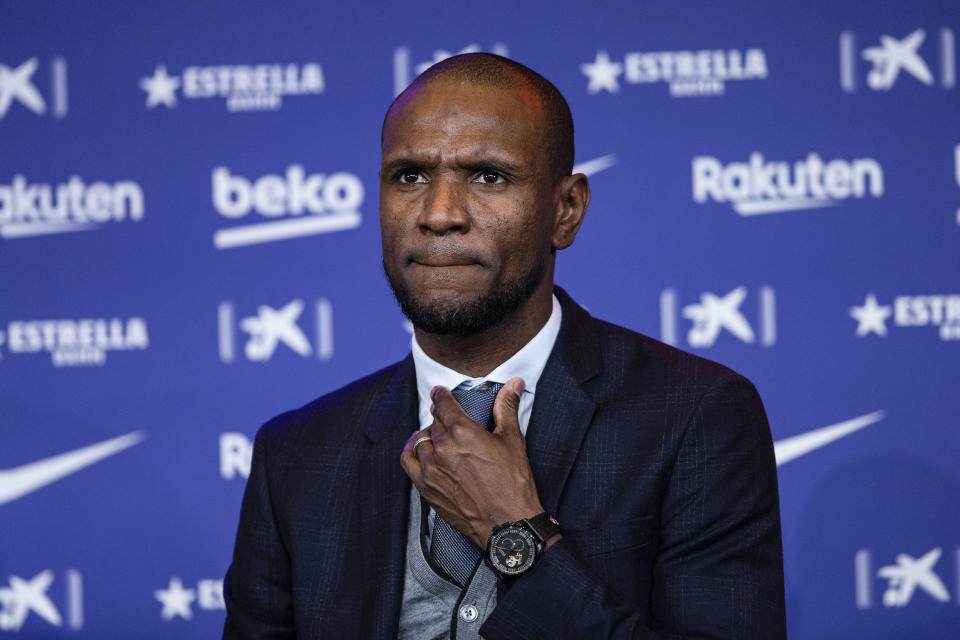Would Lionel Messi really leave Barcelona? Why it feels like more of a possibility this season

There was an FC Barcelona before Lionel Messi. There will be a Barca after Messi.
But the end of Messi, the bookending of a run that has already produced 10 Spanish titles, four European crowns and a record six world player of the year awards, could be sooner than anyone in Catalonia had imagined.
While he has been at the club 19 years, Messi is still only 32 and, improbably, remains in his prime. Last season, he compiled his sixth season with more than 50 goals. And while Barca hasn’t conquered Europe since 2015, a vexing drought, the domestic prize spigot has hardly run dry with four La Liga and four Copa del Rey titles in the last five years.
Yet things are amiss. There’s something unsettled about the little prodigy who grew into the greatest player the sport – or maybe any sport – has ever seen. There’s something off about the way he’s talking. Firstly and mainly in that he’s talking at all. After a decade and a half of stardom, Messi is still deeply uncomfortable in any spotlight not cast by the floodlights of a soccer field.
“Honestly, I don’t like to get involved with these things but I believe that everyone has to be responsible for their own jobs and take care of their own decisions,” Messi wrote on Instagram recently.
This rare and public rebuke was addressed to Barca’s technical director – and longtime Messi teammate – Eric Abidal. The Frenchman blamed manager Ernesto Valverde’s mid-January firing on the players, pointing to communication issues and squad members who were neither “satisfied” nor “working very hard.”
Messi took issue with the sporting director deflecting responsibility as well as the generalization about underperforming players without naming names.
For Messi to speak out at all, there has to be something badly wrong. He is the silent captain and for him to feel the need to say something publicly is, well, disquieting.

What’s more, his contract runs out after next season and a clause in his deal allows him to walk free this upcoming summer as well. Barca is desperate to hold on to him for the remainder of his career, but that unconditional devotion no longer looks mutual.
Certainly, Messi has never sought out a fresh challenge or tried to force a departure. By all accounts, he has no intention of uprooting his family and starting over someplace new. He’s never indicated that he’s eager to play in all the big leagues, or to live in more of Europe’s great cities. He resides in a walled-off compound, seldom leaving his wife and small children for anything but soccer.
Besides, even without a transfer fee, his reported Barca salary of $108 million a year is unaffordable to most other clubs. And the few teams that could afford it would have a hard time squaring it with UEFA’s Financial Fair Play regulations. Only a few clubs could possibly entertain the possibility. Certainly Newell’s Old Boys – Messi’s first club in Argentina where he played from age 7 until he left for Catalonia at 13, and where he long fantasized about returning – couldn’t, lest Messi took a paycut of 95 percent or so, and even that would be a stretch in the Argentinian league.
In Italy, the two juggernauts of Juventus and Inter Milan are reportedly eager – potentially setting up a tantalizing Messi-Cristiano Ronaldo combo in Turin. But besides them, the only clubs possibly capable of affording Messi’s wages are Manchester City, Liverpool and Manchester United in England, Paris Saint-Germain in France, Bayern Munich in Germany, and arch rivals Real Madrid in Spain. It’s hard to imagine any of them truly tempting him. Even a hobbled Barca offers more cache and potential for prizes.
Yet Messi’s patience also seems to be wearing thin. It doesn’t help that it’s this season, of all seasons, with Messi able to walk for free, that Barca has stumbled and tripped month after month. That this is the season, of all seasons, that the club fired a manager mid-campaign for the first time since 2002-03.
[ Follow Yahoo Soccer on Twitter and Facebook ]
It doesn’t help either that the team is more reliant on Messi than ever, with the club botching attempt after attempt to get the aging forward some help. It somehow allowed Neymar to leave three summers ago and then failed to bring him back last year, even though the Brazilian was keen. Now, striker Luis Suarez is injured for much of the remainder of the season and will, at best, be his diminished self when he returns. As for the mooted and expensively acquired attacking reinforcements, Ousmane Dembele is always injured, Philippe Coutinho is a bust already cast off to Bayern on loan, and Antoine Griezmann has been disappointing and unable to gel with the rest of the team.
And maybe this shoddy team-construction is unsurprising when you consider that the club has had four sporting directors in five years and is on its fifth manager since Pep Guardiola left in 2012. Abidal is on thin ice after a feckless winter transfer window and the Messi spat, while a sixth manager could well arrive in the summer if Quique Setien, Valverde’s replacement, doesn’t convince.
Setien is an attacking ideologue, more closely aligned with Barca’s core playing values than Valverde. His hiring felt like a move to appease Messi, even though the latter apparently remained close with Valverde until the end, before giving his blessing for the change. Then again, the job fell to Setien after two or three others turned it down.
After all these years, Messi is still the glue holding everything together.
On Sunday, at Betis, Messi provided three assists as Barca twice came from behind to win 3-2 after each team went down a man to red cards. It’s transparent to the naked eye that without Messi, this Barca – this rickety, miscast Barca – would probably not be a title contender. Indeed, a decidedly non-vintage Real Madrid team, nowhere near clearing the high bar it set during its run of four Champions League trophies in five years, is leading the league and looking like the better bet.
While a Messi departure from Barca is downgraded from impossible to merely improbable.
Leander Schaerlaeckens is a Yahoo Sports soccer columnist and a sports communication lecturer at Marist College. Follow him on Twitter @LeanderAlphabet.
More from Yahoo Sports:

